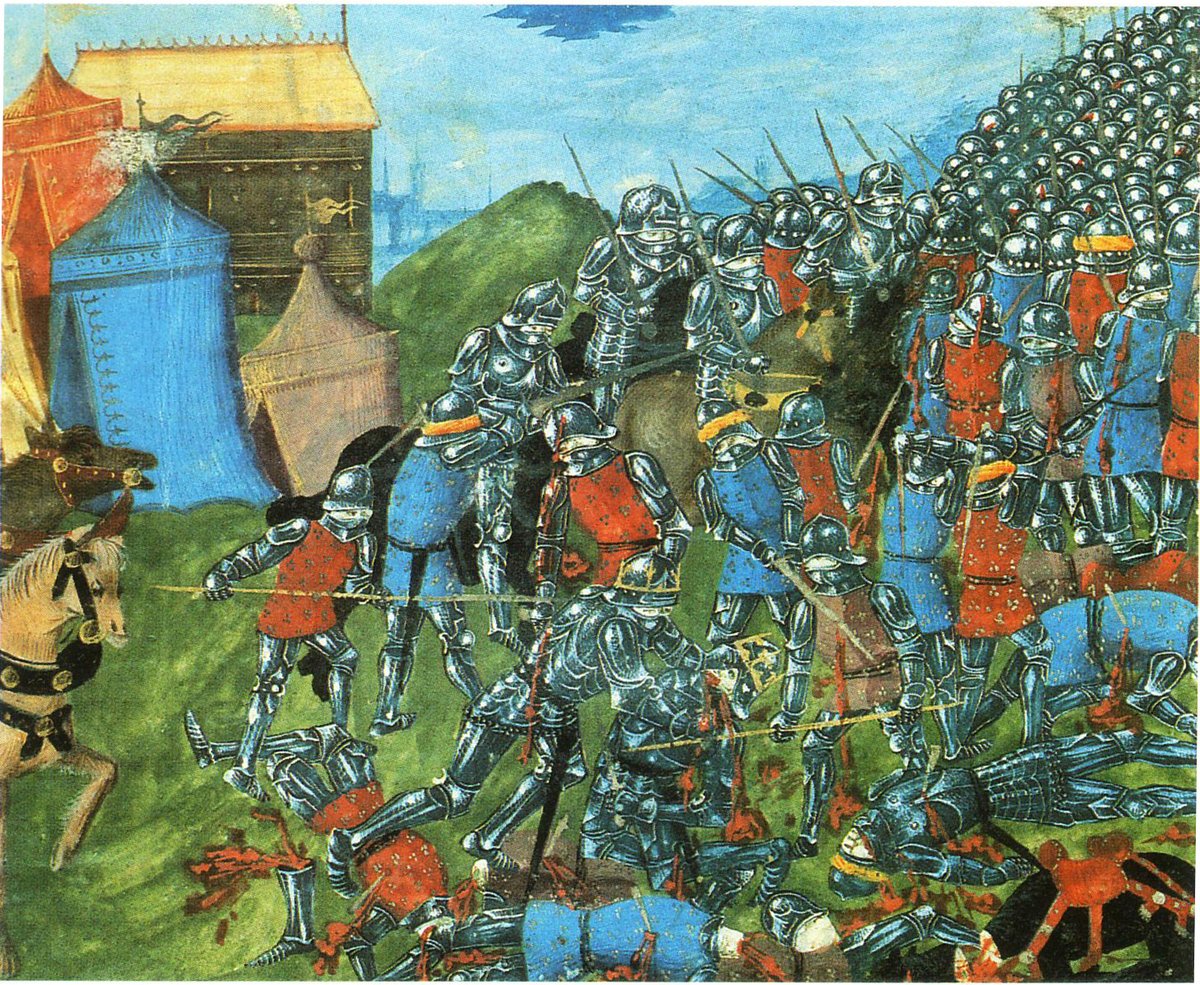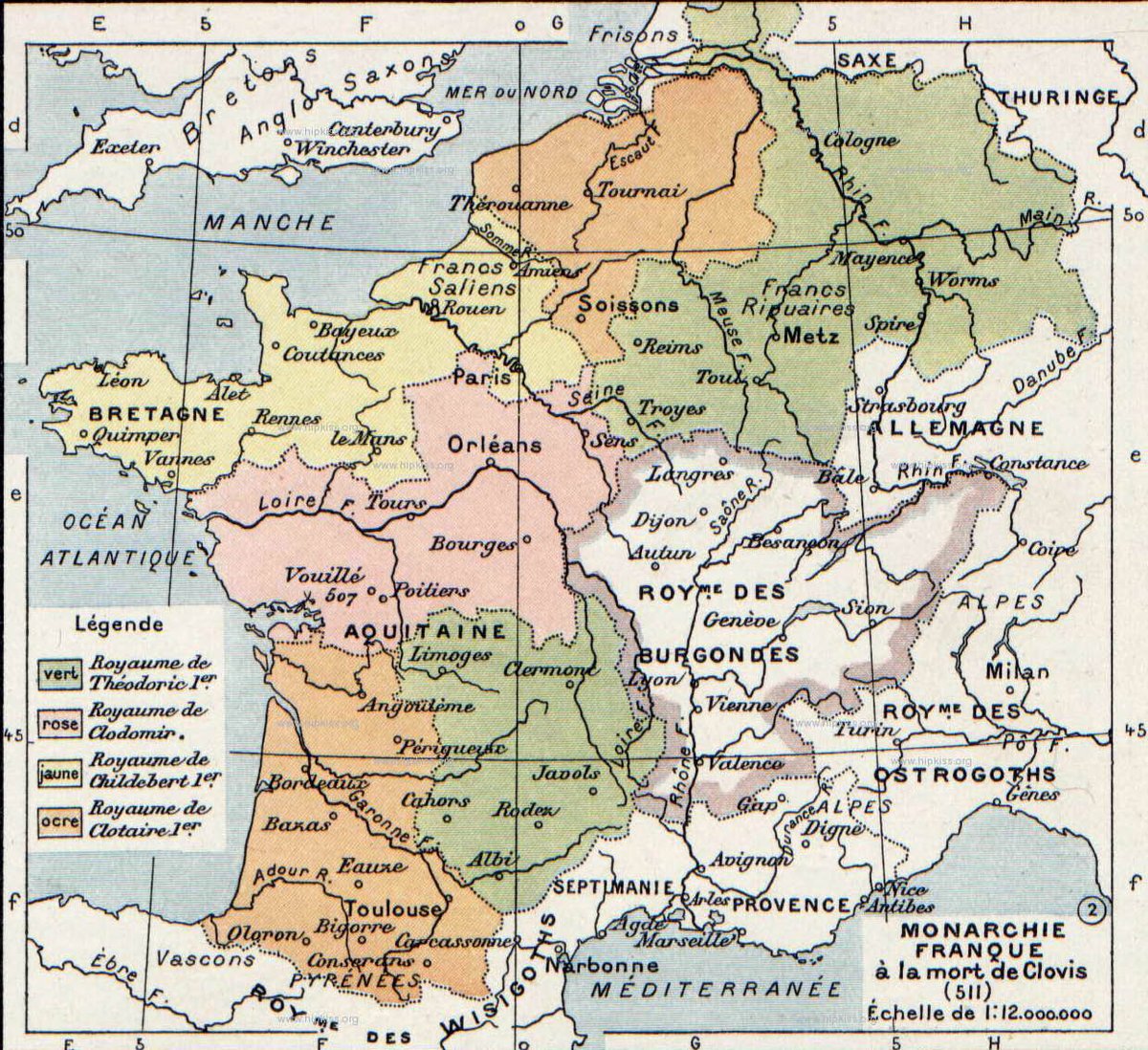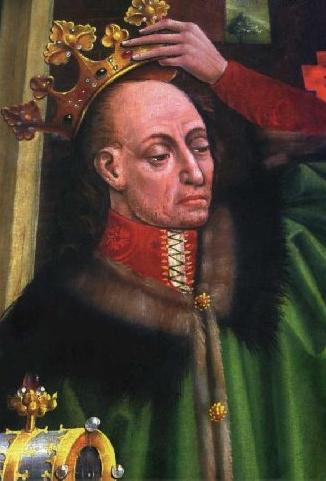
From the death of an Empire, a new kingdom emerges, one that carries on its legacy, despite having nothing in common with its predecessor - A rare historic event, which allowed a dead nation to retain a strong influence over 1,000 years after collapse.
Story in the evening ...
Story in the evening ...
https://twitter.com/Arby_K/status/1327826192230039552
Chlodovech was born around 466 to Childerich, who was a king of the Salian Franks, and Basina. Salian Franks were one of the two groups of Frankish tribes that had settled within the Roman Empire and they concentrated largely in the Rhine delta. 1/10 

The Franks were one of the many Germanic tribes that had settled in the Roman Empire. After the assassination of the Emperor Valentinian III in 455, the collapse of the Western Empire had accelerated, with many Germanic tribes acquiring parts of the Empire. 2/10 

Chlodovech, better known as Clovis (or Louis), became king in 481 after his father's death. But the Franks were not a united force, ruled by many kings. On the other side the Western Empire had finally collapsed, with Odovacar deposing the throne and seizing Italy. 3/10 

In 486, Clovis would ally with another Frankish king and a relative, Ragnachar, to defeat Syagrius, a Roman general who ruled an erstwhile Roman province around Soissons. 4/10 

By 491, Clovis had control over the former Roman province and its army, since he set his sights for more expansion. Defeating the Alemanni in 496 and the Burgundians in 500, he would come up against the Visigoths who ruled in Aquitaine. 5/10 

In 507, in the battle of Vouillé, Clovis would defeat and kill the Visigothic king Alaric II, adding Aquitaine to his vast realm. Clovis now ruled over a much larger nation similar in size to Roman Gaul. However, this realm had little in common with its new master. 6/10 

On Christmas Day in 508, Clovis would be baptized by Bishop Remigius of Reims. Though the Roman Empire had adopted the Nicene Creed of Christianity as its official religion, most of the Germanic tribes that now controlled the Empire followed the banned Arian teachings. 7/10 

The baptism of Clovis would prove to be a crucial event for Christianity and Rome. As Frankish power in the former Empire continued to grow, Roman culture and Latin would retain its reach through the Roman church. 8/10 

The vast Frankish realm would not last for long, as it was divided amongst Clovis' sons as per tradition, followed by civil war, not as per tradition but regular, just like Clovis had got rid off many relatives and competing Frankish kings when he consolidated his realm. 9/10 

The attachment of Christmas with the baptism of Clovis also foreshadowed the later prominence of the festival. Charlemagne would also choose the same day when he was crowned Emperor in 800. 10/10 

• • •
Missing some Tweet in this thread? You can try to
force a refresh














